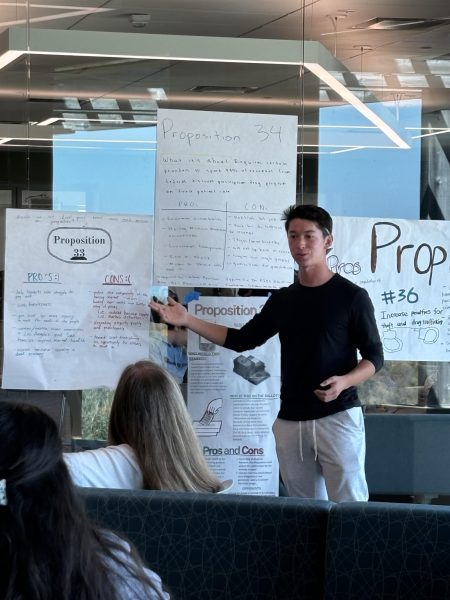
On Nov. 6, 2024, the Associated Press called Donald Trump as the victor of the 60th presidential election, putting a conclusion to months of political turmoil and campaigns.
But with the end of the election cycle dawns Trump’s impending second term, and, more likely, even greater political polarization. Contentious topics like the economy, abortion rights, foreign policy, and immigration have cut a seemingly irreparable fissure in the country’s psyche. Voters on both sides of the ballot express doubts that a new administration will bring unification to the United States.
However, lurking behind all of this political noise is a challenge far greater than any one candidate or party: misinformation and the weaponization of the media.
From the perspective of newspaper editors, there are several issues we believe hold unprecedented weight in shaping modern and future society. Over the past decade, the rapid rise of social media and the 24-hour news cycle have reshaped how the average citizen engages with news, absorbs political information, and disseminates their opinions to their family or community. The speed and volume at which social media content is produced makes it challenging for casual consumers to distinguish between truths and falsehoods. The internet is infamous for its lack of fact-checkers, after all, and yet over half of American adults obtain some form of news from social media. Misinformation, such as the viral video of a “Haitian” immigrant eating a cat – which has since been debunked as false by both fact checkers and the original video poster –have even made their way onto the presidential debate stage, showing how widespread the problem is. Furthermore, the way information gets delivered—often slanted by biased sources or through echo chambers—has contributed to growing political polarization where neither side can truly look the other in the eye and hold civil conversation.
These factors heavily impact how people vote, understand policies, and perceive the country’s future. By failing to equip ourselves with media literacy skills, we allow misinformation to thrive and deepen existing divisions. When we believe everything we read, we’re no longer voters making informed choices and reacting intelligently to the tide of times. Rather, we become sheep herded by political hounds along a set path we’re blind to.
It’s our duty as citizens and voters to rise above all this noise. In the coming weeks, as the fallout from the 2024 presidential election devours our social media channels and muddles the waters, we urge everyone to be careful of the sentiments you encounter online. Large scale protests, social media trends, political extremism—all these are possibilities that we cannot predict. We must scrutinize the information we consume, seek out diverse perspectives, and engage in conversations with people of all backgrounds and beliefs. We also encourage readers to support local news that is fact-checked and impartial to candidates or parties.
This election was never just about who becomes president—the core principle lies in upholding and defending the integrity of our democracy. It’s important to reflect on the value we place, or don’t, on the continuity of democratic institutions. And that starts with becoming informed, critical thinkers who value journalistic truth over the comfort of confirmation.




